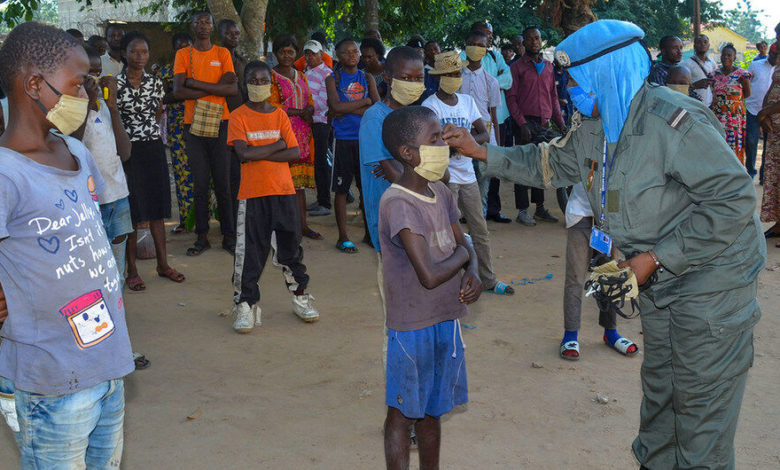#COVID19: DR Congo Bans Gathering Of More Than 20 Persons Over Third Wave
While the country is dealing with other humanitarian challenges, it has now set up guidelines for a third COVID-19 wave.

The Democratic Republic of Congo has rolled out a series of new barrier measures including the restriction of persons permitted at meetings to 20, as the country battles the third wave of COVID-19.
Gentiny Ngobila Mbaka, Governor of Kinshasa, the national capital which is the hardest hit by the pandemic, has appealed to residents of the capital to strictly respect the new measures to defeat the third wave.
“I call on you to observe the barrier measures decided by the health authorities to avoid the propagation of the pandemic which include the regular washing of hands with soap or an alcoholic solution, the obligatory wearing of masks in public places, taxis and public transport, the taking of temperatures before entering into public places, physical distancing, prohibition of public manifestations, public protests, artistic productions and concerts, festive ceremonies and meetings of more than twenty persons, sports competitions should only be in closed environments,” Mbaka pleads with residents.
“Corpses must only be transported directly from the mortuaries to burial grounds, churches must only hold in strict respect of barrier measures and only persons holding circulation permits are allowed to travel.”
Since the outbreak of the pandemic in DR Congo on March 10, 2020, 33,577 positive cases have been recorded with 27,794 infected cases successfully treated and 817 persons dead.
The prevalence of cases in the 23 provinces of the country affected stands at: 23,687 in Kinshasa, 2,943 cases in North Kivu, 2,064 cases in Haut-Katanga, 1,759 in Kongo Central, 944 in South Kivu, 916 cases in Lualaba, 389 in Tshopo, 320 in Ituri, 217 cases in Haut-Uele, 84 in Equateur, 49 cases in Haut-Lomami, 42 in Maniema, 40 in Nord-Ubangi, 30 in Kasai Central, 24 cases in Kasai Oriental, 20 cases in Tanganyika, 19 cases in Kasai, 9 in Kwilu, 7 in Sud-Ubangi, 6 cases in Bas-Uele, 5 in Kwango, 3 in Tshuapa and 2 cases in Mai-Ndombe.
Support Our Journalism
There are millions of ordinary people affected by conflict in Africa whose stories are missing in the mainstream media. HumAngle is determined to tell those challenging and under-reported stories, hoping that the people impacted by these conflicts will find the safety and security they deserve.
To ensure that we continue to provide public service coverage, we have a small favour to ask you. We want you to be part of our journalistic endeavour by contributing a token to us.
Your donation will further promote a robust, free, and independent media.
Donate HereStay Closer To The Stories That Matter




